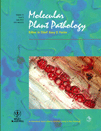
MOLECULAR PLANT PATHOLOGY
Scope & Guideline
Transforming agricultural practices through molecular insights.
Introduction
Aims and Scopes
- Molecular Mechanisms of Pathogenesis:
Research on the cellular and molecular mechanisms through which pathogens infect plants, including the identification of effector proteins and their interactions with plant immune systems. - Plant Immunity and Resistance Mechanisms:
Studies focused on understanding the genetic and biochemical pathways that underpin plant resistance to diseases, including the role of pattern recognition receptors and signaling pathways. - Genetic and Genomic Approaches:
Utilization of advanced genetic and genomic tools to dissect the interactions between plants and pathogens, including genome editing techniques and transcriptomic analyses. - Biocontrol and Disease Management Strategies:
Research aimed at developing sustainable and environmentally friendly strategies for managing plant diseases, including the use of biopesticides and resistant plant varieties. - Plant-Microbe Interactions:
Exploration of the complex interactions between plants and beneficial microbes, including symbiotic relationships and the role of the microbiome in plant health.
Trending and Emerging
- CRISPR and Gene Editing Technologies:
There is an increasing trend in the application of CRISPR and other gene editing technologies to enhance plant resistance against pathogens, showcasing advancements in genetic engineering. - Omics Approaches in Pathogen Research:
The use of transcriptomics, proteomics, and metabolomics to study plant-pathogen interactions has gained momentum, allowing for a more comprehensive understanding of these complex relationships. - Microbiome Studies in Plant Health:
Research exploring the role of plant-associated microbiomes in disease resistance is on the rise, highlighting the importance of beneficial microorganisms in plant health. - Molecular Plant-Microbe Interactions:
A notable increase in studies investigating the molecular basis of interactions with beneficial microbes, including endophytes and mycorrhizae, suggests a shift towards a more holistic view of plant health. - Climate Change and Plant Pathology:
Emerging research addressing the impact of climate change on plant disease dynamics is becoming more prevalent, emphasizing the need for adaptive management strategies in agriculture.
Declining or Waning
- Traditional Pathogen Identification Methods:
There is a noticeable decrease in papers focusing on classical methods of pathogen identification and characterization, as molecular and genomic techniques become more prevalent and preferred. - Historical Plant Pathology Studies:
The journal has published fewer articles that primarily discuss historical perspectives or traditional methods in plant pathology, indicating a shift towards more innovative and technology-driven research. - General Reviews on Plant Diseases:
The frequency of general reviews summarizing established knowledge on plant diseases has declined, with a preference now for specific, cutting-edge research findings.
Similar Journals
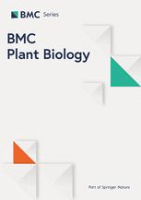
BMC PLANT BIOLOGY
Exploring the Depths of Plant Science KnowledgeBMC Plant Biology, published by BMC, is a leading open-access journal devoted to the field of plant science, presenting high-quality research that contributes significantly to the understanding of plant biology. Since its inception in 2001, the journal has established itself as a prominent platform for disseminating innovative research, achieving a commendable Q1 ranking in Plant Science within the 2023 Scopus quartiles, and ranking #39 out of 516 journals in the Agricultural and Biological Sciences category, indicating its substantial impact with a 92nd percentile ranking. Researchers, professionals, and students engaged in the study of plant biology will find a wealth of knowledge in its comprehensive scope, covering critical areas such as molecular biology, genetics, ecology, and biotechnology. The journal's commitment to open access ensures that cutting-edge research is available to a global audience, fostering collaboration and advancement in the field. BMC Plant Biology continues to inspire and facilitate growth in plant-related studies, making it an invaluable resource for anyone interested in the vibrant and essential domain of plant science.

BANGLADESH JOURNAL OF BOTANY
Advancing Botanical Knowledge in BangladeshBANGLADESH JOURNAL OF BOTANY is a prominent publication in the field of plant sciences, dedicated to advancing research and knowledge within the botanical community. Published by the BANGLADESH BOTANICAL SOC, this journal serves as a vital platform for researchers and scholars seeking to disseminate their findings related to plant biology, ecology, and conservation practices, particularly within the unique context of Bangladesh's diverse flora. With an ISSN of 0253-5416 and an E-ISSN of 2079-9926, the journal encompasses a wide scope of topics, reflecting interdisciplinary approaches in botanical research. Since its inception, with convergence periods from 1996 to 2001 and from 2003 to 2024, it has garnered recognition, positioned in the Q4 category in the Plant Science field with a ranking of #459/516 in Scopus, indicating its contribution to the field despite its developing impact. Operating within Bangladesh, at the UNIV DACCA DEPT BOTANY, the journal provides a crucial insight into the ecological and agricultural implications of plant studies in the region, catering to the needs of academics, professionals, and students eager to engage with contemporary botanical research.
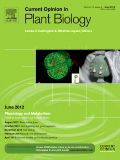
CURRENT OPINION IN PLANT BIOLOGY
Exploring Innovative Insights in Plant BiologyCURRENT OPINION IN PLANT BIOLOGY is a premier academic journal published by CURRENT BIOLOGY LTD, dedicated to providing comprehensive insights and critical analyses on the latest advancements in the field of plant science. Established in 1998 and with a circulation slated until 2024, it holds an impressive Q1 ranking in the prestigious plant science category, reflecting its significant contribution to the discipline. With a Scopus rank of #11 out of 516, the journal is positioned in the 97th percentile, underscoring its influential role in shaping contemporary research. Although it does not offer open access, the journal provides valuable information that is essential for researchers, professionals, and students alike. The ISSN for this influential journal is 1369-5266, and its online presence is marked by the E-ISSN of 1879-0356. As a critical platform for the exchange of ideas and cutting-edge findings in plant biology, CURRENT OPINION IN PLANT BIOLOGY continues to be a vital resource for those looking to advance their understanding of plant systems and innovations across agricultural and biological sciences.

EUROPEAN JOURNAL OF PLANT PATHOLOGY
Transforming challenges into solutions for plant health.The EUROPEAN JOURNAL OF PLANT PATHOLOGY, published by SPRINGER, is a leading academic journal dedicated to advancing the understanding of plant pathology within the fields of Agronomy, Horticulture, and Plant Science. With an ISSN of 0929-1873 and an E-ISSN of 1573-8469, this journal has established its presence since its inception in 1994 and continues to serve as an essential resource for researchers, professionals, and students through 2024. The journal is ranked in the Q2 category in multiple scholarly domains and boasts impressive Scopus rankings, placing it in the 80th percentile for Horticulture and 69th percentile for Plant Science. Notably, it facilitates the dissemination of cutting-edge research and reviews that address critical challenges in plant health, disease management, and sustainable agricultural practices. Although the journal is not Open Access, it provides vital insights and contributes significantly to the scientific community, fostering collaboration and innovation in plant pathology.
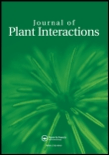
Journal of Plant Interactions
Fostering Knowledge in Plant Ecology and InteractionsThe Journal of Plant Interactions, published by Taylor & Francis Ltd in the United Kingdom, serves as a leading open-access platform dedicated to advancing the understanding of plant interactions and their ecological implications. Established in 2005 and transitioning to open access in 2015, this journal focuses on both fundamental and applied aspects of plant interactions, providing invaluable insights for researchers, professionals, and students within the fields of Ecology and Plant Science. With a commendable impact factor and ranked in the second quartile (Q2) for both Ecology, Evolution, Behavior and Systematics and Plant Science, it reflects the quality and relevance of its published research. Researchers aiming to publish innovative studies on plant behavior and ecosystem dynamics will find a welcoming avenue for their work, as the journal is dedicated to fostering open dialogue and sharing knowledge across disciplines.
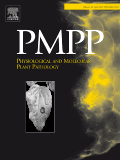
PHYSIOLOGICAL AND MOLECULAR PLANT PATHOLOGY
Transforming plant science with groundbreaking discoveries.Physiological and Molecular Plant Pathology is a leading journal published by Academic Press Ltd - Elsevier Science Ltd, dedicated to advancing our understanding of plant diseases through the synthesis of physiological and molecular perspectives. With an ISSN of 0885-5765, this esteemed journal has been a cornerstone in the field since its inception in 1986 and continues to publish critical research findings up to 2024. Notably, it holds a strong reputation in Plant Science, ranked Q2, and genetics, ranked Q3, reflecting its impactful contributions to these important areas of study. The journal is recognized within Scopus, achieving a ranking of 151 out of 516 in Plant Science, positioning it within the 70th percentile, making it a vital resource for researchers and students alike. While it is not an open-access journal, the insights provided in each issue are invaluable for those dedicated to understanding the complexities of plant pathology and enhancing agricultural resilience. Researchers, professionals, and students in the field are encouraged to explore and contribute to this pivotal journal, which plays a crucial role in driving innovation and discovery in plant health sciences.
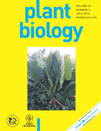
PLANT BIOLOGY
Fostering Collaboration in Plant SciencePLANT BIOLOGY is a prestigious academic journal published by Wiley, dedicated to advancing knowledge in the fields of plant science, ecology, and evolutionary biology. With an impressive impact factor and ranking in the Q1 category for Ecology, Evolution, Behavior and Systematics, and Plant Science as of 2023, it stands at the forefront of research dissemination. The journal encompasses a broad scope of plant biology topics, providing a critical platform for researchers to share innovative findings and foster interdisciplinary collaboration. Available in both print (ISSN: 1435-8603) and online formats (E-ISSN: 1438-8677), it ensures accessibility through open access options. As a crucial resource for professionals, researchers, and students alike, PLANT BIOLOGY cultivates a deeper understanding of plant systems and their ecological significance, making it an essential addition to the library of anyone dedicated to the study of biology and the environment.
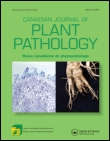
CANADIAN JOURNAL OF PLANT PATHOLOGY
Advancing plant health through innovative research.Canadian Journal of Plant Pathology, published by Taylor & Francis Inc, is a leading academic journal dedicated to advancing the field of plant pathology, with a significant focus on the interplay between plant health and environmental factors. Established in 1979, this journal has established a reputation for high-quality research, currently holding a commendable impact factor within its category. As of 2023, it ranks in the Q2 quartile for both Agronomy and Crop Science as well as Plant Science, highlighting its importance and influence in these domains. With an impressive ranking of 142/516 in Plant Science and 115/406 in Agronomy and Crop Science according to Scopus, the journal is positioned within the 72nd and 71st percentiles, respectively. The Canadian Journal of Plant Pathology serves as a vital platform for researchers, professionals, and students aiming to contribute to the understanding of plant diseases, fostering innovation and development in agricultural practices.
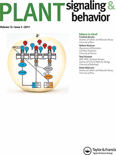
Plant Signaling & Behavior
Revolutionizing Understanding of Plant InteractionsPlant Signaling & Behavior is a prestigious journal published by TAYLOR & FRANCIS INC, dedicated to advancing the understanding of the complex signaling mechanisms and behavioral responses of plants. With an ISSN of 1559-2316 and an E-ISSN of 1559-2324, it has firmly established itself in the field of Plant Science, earning a Q1 ranking in the 2023 category quartiles and ranking #83 out of 516 in Agricultural and Biological Sciences, placing it in the 84th percentile according to Scopus metrics. The journal serves as a vital platform for researchers and professionals looking to publish innovative studies and reviews that explore the intricate relationships between plant behavior and environmental signaling. With coverage spanning from 2006 to 2024, Plant Signaling & Behavior not only enhances academic discourse but also supports the growing interdisciplinary nature of plant sciences. Although the journal is not open access, it remains a significant resource for students, researchers, and practitioners aiming to deepen their understanding of plant signaling and its implications for ecology and agricultural practices.
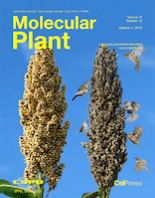
Molecular Plant
Connecting breakthroughs in molecular biology and plant science.Molecular Plant, published by CELL PRESS, is a premier journal dedicated to advancing the field of molecular biology and plant science. With an impressive impact factor reflecting its rigorous peer-review process and the high quality of its published research, this journal has achieved a remarkable Q1 ranking in both Molecular Biology and Plant Science categories as of 2023. Its Scopus rankings place it within the top echelons of its field, holding 2nd place in Agricultural and Biological Sciences - Plant Science, showcasing its vital role in disseminating impactful research. The journal covers a broad range of topics, including but not limited to, plant genetics, molecular interactions, and biotechnological advances. Research published in Molecular Plant has the potential to significantly influence agricultural practices and biotechnological applications, making it an essential resource for researchers, professionals, and students eager to stay at the forefront of plant research. Access options for the journal are tailored to accommodate a wide audience, facilitating engagement with cutting-edge findings and breakthroughs. As the field of plant science continues to evolve, Molecular Plant remains integral to fostering innovation and collaboration within the scientific community.